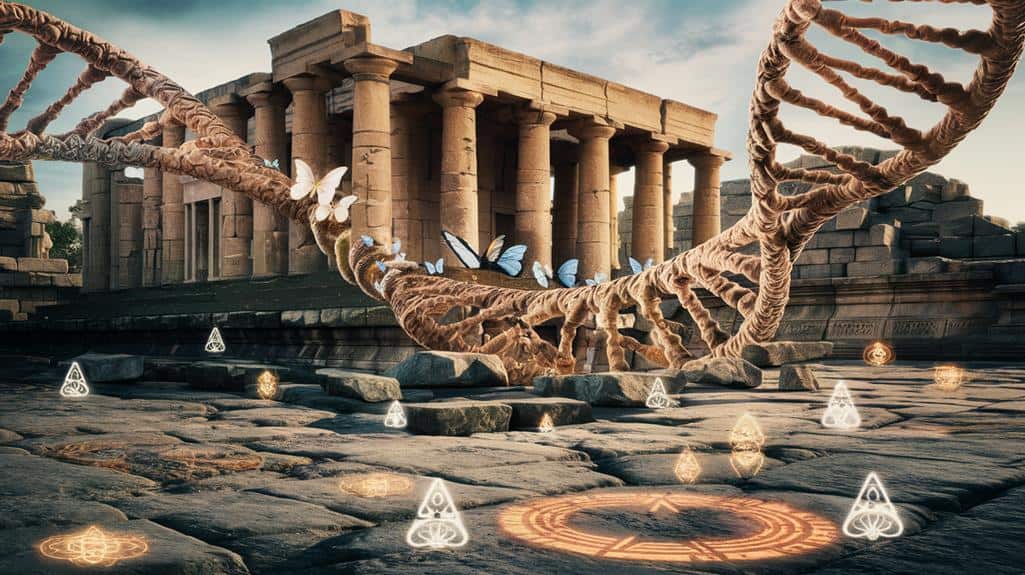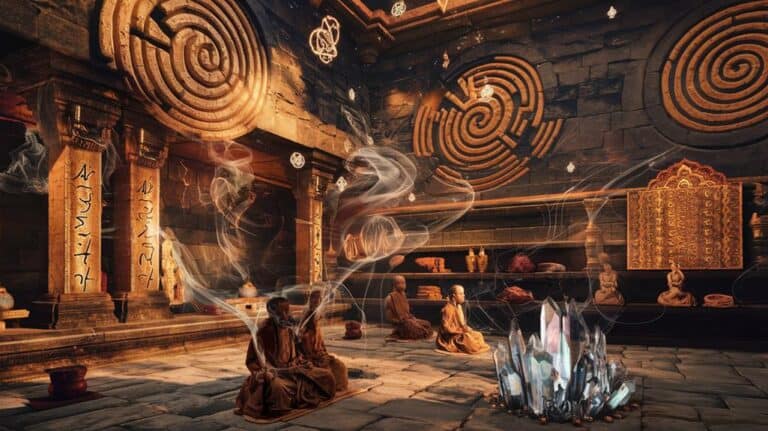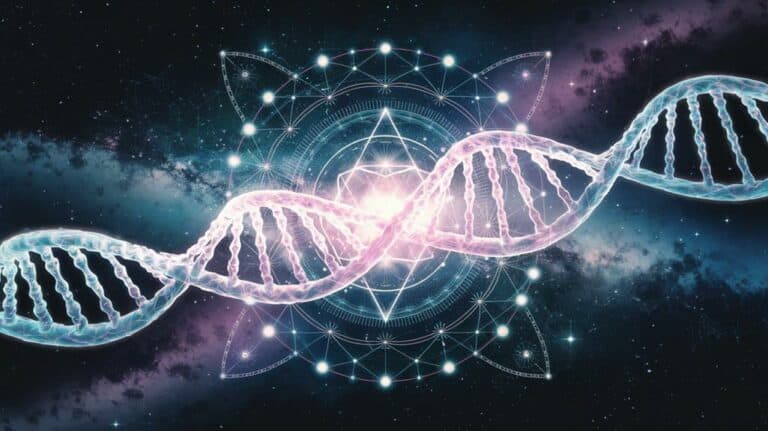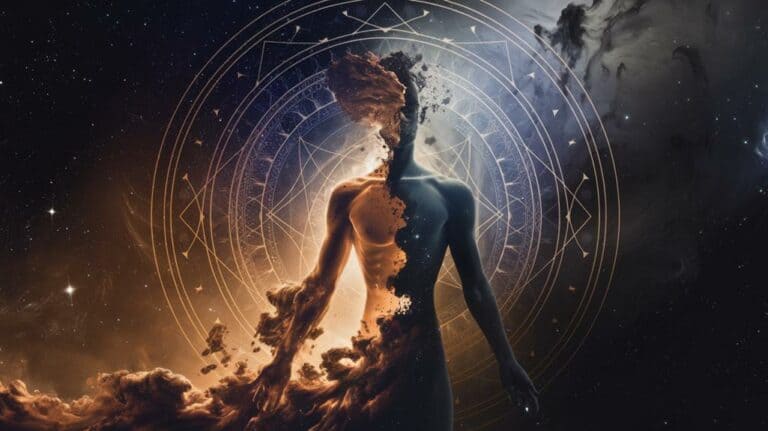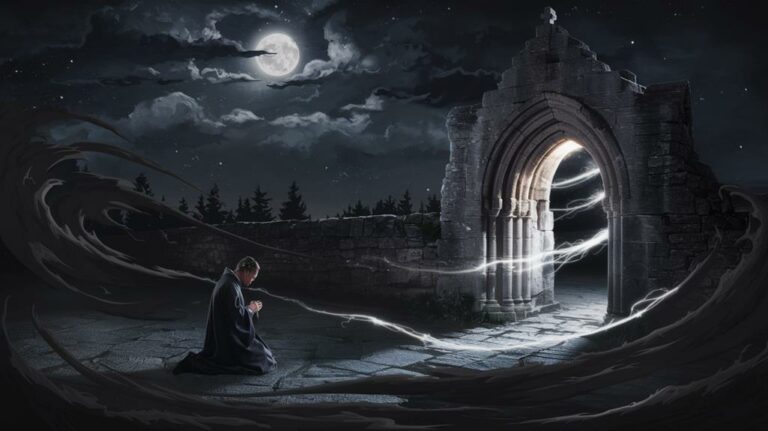Returning Religion to Evolution
You’ve likely encountered the apparent conflict between religious faith and evolutionary science, perhaps wondering if you must choose between them. Yet this perceived divide isn’t as rigid as many assume. When you examine the evidence, you’ll find numerous theologians and scientists who’ve discovered meaningful ways to harmonize these perspectives. From the Vatican’s acceptance of evolutionary theory to prominent biologists who maintain their faith, there’s a growing recognition that divine creation and natural selection aren’t mutually exclusive. What’s emerging is a more nuanced conversation about how these two worldviews can inform and enrich each other.
Historical Conflicts and Common Ground
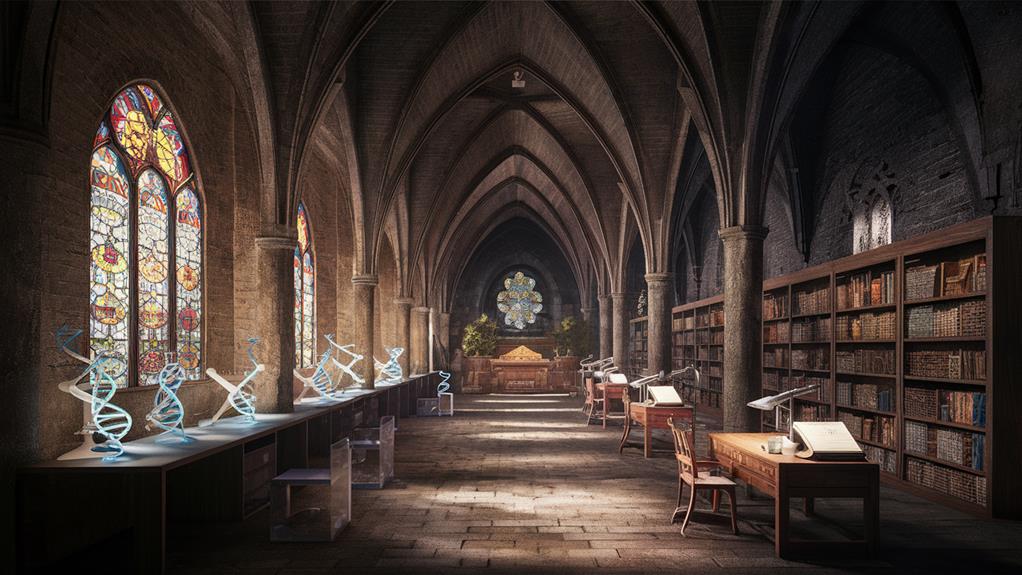
Three major conflicts have shaped the contentious relationship between religion and evolution.
You’ll find the first in the battle over human origins, where biblical creation narratives clash with scientific evidence of natural selection. The second emerges from disagreements about purpose and meaning – whether life’s complexity implies divine design or emerges through undirected processes. The third centers on morality’s foundations, questioning if ethical behavior requires supernatural guidance or can arise naturally.
Yet beneath these tensions, you’ll discover surprising areas of overlap that you mightn’t have considered.
Both science and faith grapple with humanity’s place in the cosmos, seek to understand the nature of existence, and wrestle with questions of purpose. You’ll notice how religious thinkers increasingly embrace evolution as God’s method of creation, while scientists acknowledge the limits of their discipline in addressing life’s deepest meanings.
When you explore these intersections thoughtfully, you’ll find that evolution and religion often complement rather than contradict each other.
They’re offering different perspectives on life’s great mysteries, each valuable in its own domain of understanding.
Modern Theological Views on Darwin
Religious scholars today have dramatically shifted their stance on Darwin’s ideas, moving far beyond the simplistic rejection that marked earlier debates.
You’ll find that many theologians now embrace evolution as a mechanism through which divine creativity manifests, seeing natural selection as compatible with their faith rather than opposed to it.
As you explore contemporary religious thought, you’ll discover that prominent Christian, Jewish, and Muslim thinkers have developed sophisticated frameworks that integrate evolutionary theory with their spiritual worldviews.
They’re suggesting that you don’t need to choose between science and faith – both can coexist and even enrich each other.
The Vatican’s acceptance of evolution as “more than just a hypothesis” reflects this profound shift in religious thinking.
You’ll notice that modern theological interpretations often view Darwin’s work as revealing the intricate methods of creation rather than denying a creator.
Many religious leaders now encourage you to see evolution as illuminating the how of creation while religion addresses the why, allowing you to embrace both your spiritual nature and your scientific understanding of life’s development.
Scientific Support for Coexistence
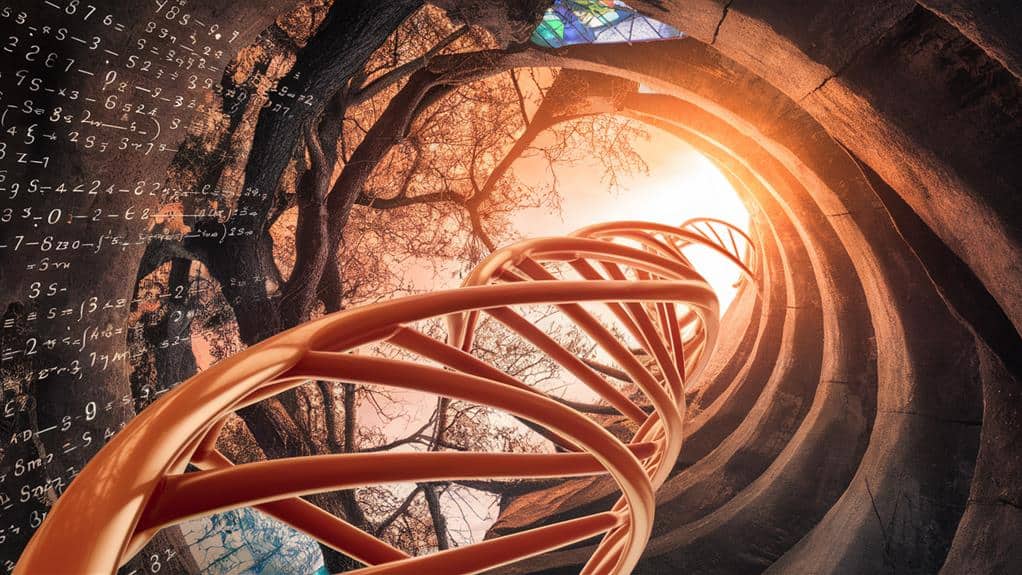
Over the past few decades, leading scientists have increasingly supported the compatibility between evolutionary science and religious belief. You’ll find renowned researchers like Francis Collins, former director of the Human Genome Project, demonstrating how scientific inquiry and faith can complement rather than contradict each other.
Through careful examination of empirical evidence, they’ve shown that evolution’s mechanisms don’t preclude divine purpose or meaning.
When you explore the work of organizations like BioLogos, you’ll discover a growing body of research supporting the harmonious coexistence of evolutionary theory and religious worldviews. Scientists have identified how natural selection and genetic variation can operate within a framework that acknowledges both scientific fact and spiritual truth.
You’ll notice that quantum physics and complexity theory have opened new possibilities for understanding how divine action might interface with natural processes without violating scientific principles.
This synthesis doesn’t require you to compromise either scientific integrity or religious conviction. Instead, it invites you to embrace a more nuanced perspective where the methodological naturalism of science can coexist with the metaphysical insights of faith, each illuminating different aspects of our complex reality.
Bridging Faith and Natural Selection
Building on the scientific support for coexistence, a deeper examination of natural selection reveals specific ways to bridge evolutionary mechanisms with religious perspectives.
You’ll find that the gradual unfolding of life’s complexity through natural selection mirrors many religious concepts of divine creativity expressed over time. When you consider how genetic variations arise and persist, you’re witnessing a process that doesn’t preclude divine guidance but rather offers a glimpse into potential mechanisms of sacred creation.
You can embrace both the empirical evidence of evolutionary change and your spiritual understanding of life’s purpose, as they’re addressing different aspects of existence.
Natural selection explains how species adapt and diversify, while your faith illuminates why you’re here and what gives life meaning. Through this lens, you’ll discover that evolution’s elegant solutions to environmental challenges can deepen your appreciation for the divine, whether you view it as direct intervention or as the establishment of natural laws that guide life’s development.
The precision of molecular mechanisms and the intricate web of ecological relationships can strengthen, rather than diminish, your sense of wonder at creation’s majesty.
Future Directions for Both Fields
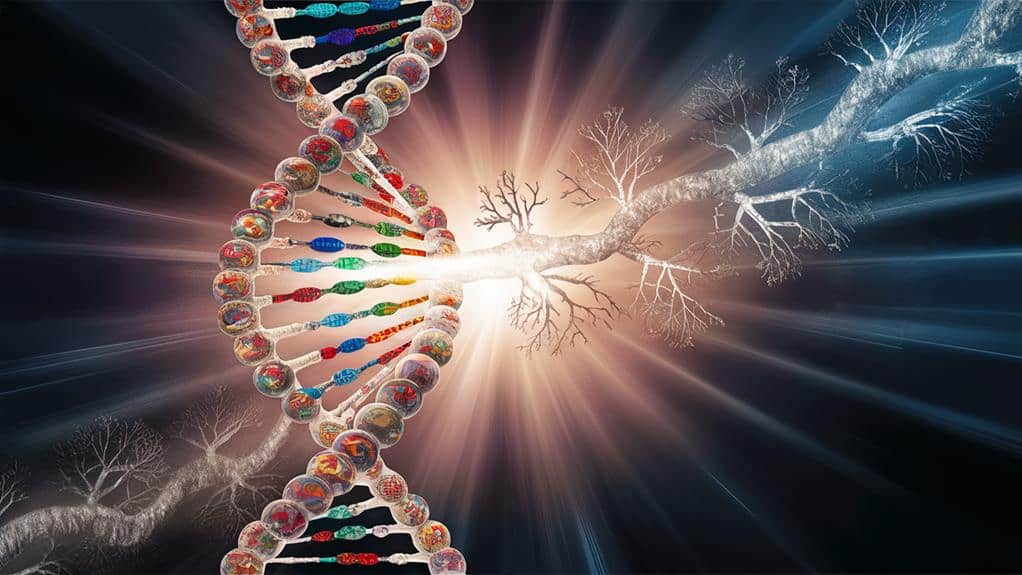
Three key opportunities emerge for advancing the dialogue between religion and evolution in coming decades.
First, you’ll witness increasing collaboration between theologians and evolutionary biologists as they explore how religious narratives can enrich our understanding of humanity’s development while respecting scientific evidence.
Second, you’ll find new frameworks emerging that honor both the metaphysical insights of faith traditions and the empirical discoveries of evolutionary science.
As you navigate this converging landscape, you’ll discover that the third opportunity lies in educational spaces, where you can help develop curricula that present evolution and religious thought not as adversaries, but as complementary approaches to life’s deepest questions.
Within these spaces, you’ll explore how religious wisdom can inform ethical discussions about genetic engineering, artificial intelligence, and humanity’s evolutionary future.
You’re entering an era where the false dichotomy between faith and science dissolves, revealing a richer tapestry of human understanding.
Through this integration, you’ll contribute to a more nuanced dialogue that honors both the sacred and the scientific, creating pathways for deeper exploration of existence’s fundamental mysteries.
Conclusion
You’ve witnessed how science and faith can intertwine, creating a tapestry that’s richer than either thread alone. As you continue exploring this convergence, you’ll find that evolution and religion don’t compete but complement, offering dual perspectives on life’s grand narrative. Through this synthesis, you’re invited to embrace both the empirical wonder of natural selection and the profound spiritual meaning that shapes your understanding of existence.



